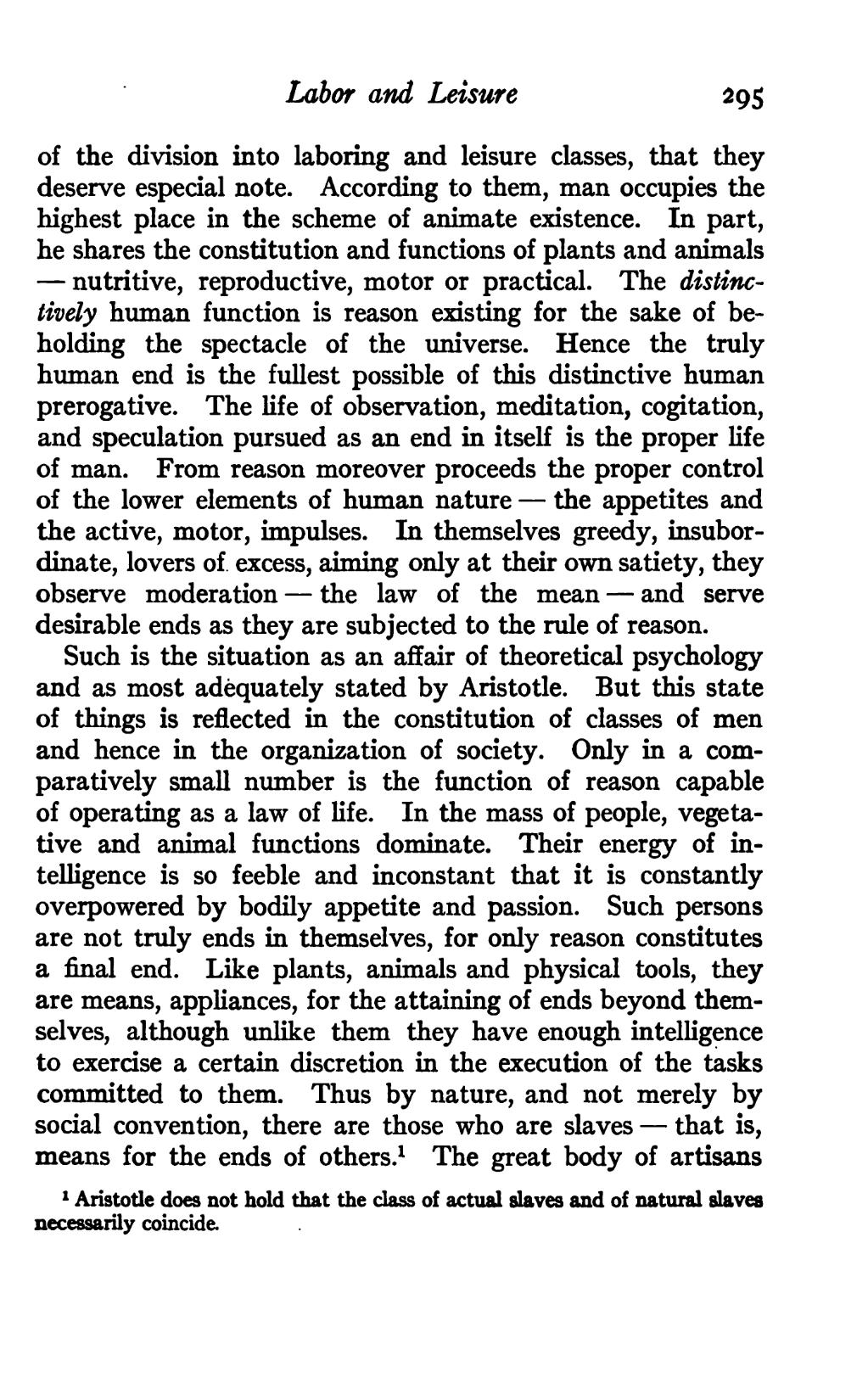of the division into laboring and leisure classes, that they deserve especial note. According to them, man occupies the highest place in the scheme of animate existence. In part, he shares the constitution and functions of plants and animals—nutritive, reproductive, motor or practical. The distinctively human function is reason existing for the sake of beholding the spectacle of the universe. Hence the truly human end is the fullest possible of this distinctive human prerogative. The life of observation, meditation, cogitation, and speculation pursued as an end in itself is the proper life of man. From reason moreover proceeds the proper control of the lower elements of human nature—the appetites and the active, motor, impulses. In themselves greedy, insubordinate, lovers of excess, aiming only at their own satiety, they observe moderation—the law of the mean—and serve desirable ends as they are subjected to the rule of reason.
Such is the situation as an affair of theoretical psychology and as most adequately stated by Aristotle. But this state of things is reflected in the constitution of classes of men and hence in the organization of society. Only in a comparatively small number is the function of reason capable of operating as a law of life. In the mass of people, vegetative and animal functions dominate. Their energy of intelligence is so feeble and inconstant that it is constantly overpowered by bodily appetite and passion. Such persons are not truly ends in themselves, for only reason constitutes a final end. Like plants, animals and physical tools, they are means, appliances, for the attaining of ends beyond themselves, although unlike them they have enough intelligence to exercise a certain discretion in the execution of the tasks committed to them. Thus by nature, and not merely by social convention, there are those who are slaves—that is, means for the ends of others.[1] The great body of artisans
- ↑ Aristotle does not hold that the class of actual slaves and of natural slaves necessarily coincide.
